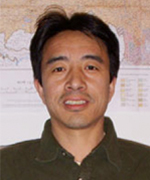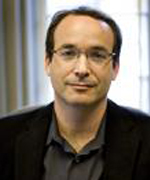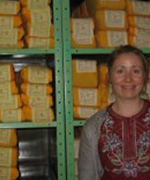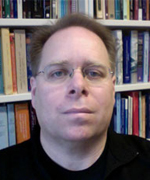Kavya in Tibet
Kavya in Tibet is a session following from a workshop on Tseten Zhabdrung’s commentary on poetics (Snyan ngag spyi don) that was hosted at the Latse Library with Gendun Rabsel, Nicole Willock, Andy Quintman, and Kurtis Schaeffer. The Tibetan system of poetics and ornate poetry is highly influential in the history of Tibetan writing and is based on the most important Indian manual of poetics, Daṇḍin’s Mirror of Poetics (Kāvyādarśa). This session introduced some of the fundamental theory and practice of this snyan ngag type of literature. The intellectual gravity of snyan ngag did not make itself felt until 1267 and 1270 when the Kāvyādarśa was translated fully into Tibetan. From that point onward we see hundreds of major and minor works on snyan ngag and its influence on writers throughout the Tibetan world can hardly be overstated. The organizers of this session give four main reasons for presenting a more extended public presentation of kavya and why that would be useful and enjoyable for people who engage in different kinds of work with Tibetan texts: 1) snyan ngag is one of Tibet’s major art forms and most other types of writing are heavily influenced and often include snyan ngag; 2) This classical form of literary art is still alive today, and snyan ngag is at the center of contemporary discussions and debates about the relationship between innovation and tradition in modern Tibetan literature; 3) it is notoriously difficult to learn, but useful for a deeper understanding and appreciation of Tibetan literature; 4) historically it is now possible to approach this challenging technical literature because of the work being done be a few scholars and translators these days.
Event: TT Conference 2017 – Translator's Craft Session
Date: June 2, 2017 – 2:30 pm
Speakers: Andrew Quintmen, Gendun Rabsel, Kurtis Schaeffer, Nicole Willock
Topics: Poetry, Sanskrit Language, Translation Theory

Gendun Rabsal
Independent
Gendun Rabsal teaches at Indiana University and his life goal is to contribute to preserving and promoting the advancement and flourishing of Tibetan literature and language. With these concepts in mind, he has chosen to devote his career to teaching, writing, researching, and translating so that Tibetan language can flourish in today’s world.

Andrew Quintman
Yale University
Quintman is associate professor in the Department of Religious Studies at Yale University, specializing in the Buddhist traditions of Tibet and the Himalaya. For seven years he served as the academic director of the School for International Training’s Tibetan Studies program based in Kathmandu. He is the author of The Yogin and the Madman: Reading the Biographical Corpus of the Great Tibetan Saint Milarepa (Columbia University Press 2014). His English translation of The Life of Milarepa (2010) was published in the Penguin Classics series. He is currently writing a history of Drakar Taso Monastery in Tibet southern borderland and a study of the Buddha’s life story through the visual and literary materials of Jonang Monastery in western Tibet.

Nicole Willock
Old Dominion University
Nicole Willock (PhD Indiana University in Tibetan Studies and Religious Studies, 2011) is an assistant professor at Old Dominion University in Norfolk, Va. She is 2017 Research Fellow, The Robert H. N. Ho Family Foundation Program in Buddhist Studies, administered by the American Council of Learned Societies for her book project: Lineages of the Literary: Tibetan Buddhists Making Modern China. She is currently polishing up A Tibetan-English Primer for Poetics (Snyan ngag leg deb bod yin shan sbyar), which is co-authored by Gendün Rabsal. She also co-translated “Zhangtön Tenpa Gyatso’s Advice a Jeweled Rosary” with Gendün Rabsal, which will appear in Buddhist Luminaries: Inspired Advice by Nineteenth-Century Ecumenical Masters in Eastern Tibet, edited by Holly Gayley and Joshua Schapiro (Boston: Wisdom Publications, expected in 2017).

Kurtis Schaeffer
University of Virginia
Kurtis R. Schaeffer received an MA in Buddhist Studies from the University of Washington in 1995, a PhD in Tibetan and South Asian Religions from Harvard in 2000 and is now an associate professor of Tibetan and Buddhist Studies at the University of Virginia. His books include Sources of Tibetan Tradition (2013), The Tibetan History Reader (2013), The Culture of the Book in Tibet (2009), An Early Tibetan Catalogue of Buddhist Literature (2009), Dreaming the Great Brahmin (2005), and Himalayan Hermitess (2004).
